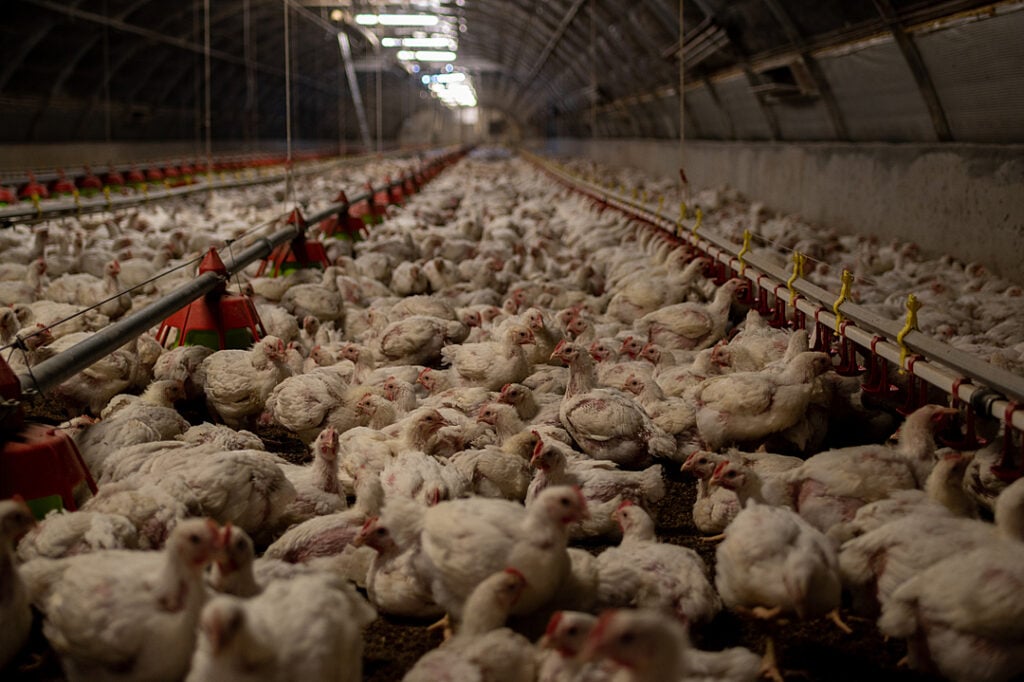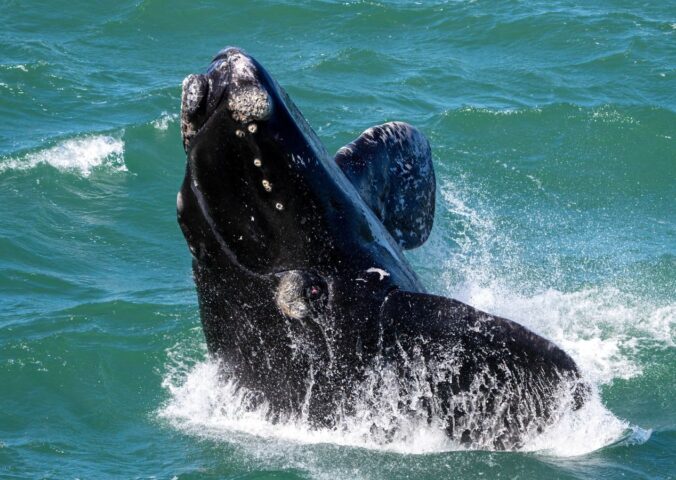Mega-farms, which hold hundreds of thousands of animals (and in some cases more than one million), are rife across the UK, according to new research.
An investigation by the Guardian has revealed that England, Wales, and Northern Ireland are now home to more than 1,000 mega-farms. Each is modeled on similar operations (known as concentrated animal feeding operations, or CAFOs) in the US.
Using the US guidelines, the UK was understood to have had at least 1,099 mega-farms in operation by 2021. The real figure is estimated to be higher.
Inaccuracies are due to Scotland being unable to submit its own figures following a cyber security breach in 2020. The Scottish Environment Protection Agency revealed in December of that year that most of its data was stolen, encrypted, or deleted.
The rise of UK mega-farms
Farmers choose mega-farm facilities to maximize their profits. Intensive industrial farming allows for more animals to be reared in a shorter space of time while using fewer resources. For example, a mega farm can hold more than 82,000 egg-laying hens or more than 125,000 broiler birds (birds raised for meat).
The practice has drawn concerns from animal welfare campaigners. They have stated that such unnatural conditions force animals to live in pain and fear until they are killed.
The Guardian first reported on the influx of US-style mega-farms in 2017, following its own investigation into the phenomena. Back then, the UK had around 800. Today, poultry units alone (of which there are 745) almost match that figure.
Up-to-date information has now been released through the publication of Sixty Harvests Left: How to Reach a Nature-Friendly Future. Written by Philip Lymbery, chief executive of Compassion in World Farming, the book shines a light on the environmental consequences of such farming practices.
Lymbery lays bare the vast expansion of mega-farms in the UK. He highlights that four of the poultry farms hold at least one million birds, with one totaling 1.4 million. Pig farmers are contributing significantly as well, with the three biggest farms each claiming more than 20,000 animals.
Beef cattle and dairy cows are not exempt from the UK mega-farms. At least 19 mega-dairies are known to be in operation. All cows are permanently housed in indoor sheds and not allowed to graze outside. In addition, nine beef farms have been identified, where animals are quickly fattened up ahead of slaughter for meat production.
“Let’s stop denying that factory farming is inherently cruel and a major driver of wildlife decline and climate change,” Lymbery told The Guardian.
The environmental cost of mega-farms
Animal agriculture is a major contributor to the climate crisis. It creates at least 14.5 percent of all anthropogenic greenhouse gas emissions.
As a result, leading climate and food experts are calling for a reduction in the reliance on meat production.
Most recently, Henry Dimbleby, the UK government food tsar, recommended a 30 percent reduction in dairy and meat consumption, in order to meet environmental pledges.
Dimbleby bases his calculations on the fact that 85 percent of all agricultural land in the UK is used to graze animals or grow crops for their feed, thereby bolstering an unsustainable food system.
Other experts have taken a stronger line. Oxford University researchers claim that only cutting beef consumption by 90 percent and milk by 60 percent will contribute significantly enough to ease the climate crisis.
The UK government has been found to be lacking in meaningful progress towards meet net-zero ambitions and carbon budgets. This was proven in court by environmental charity ClientEarth.
The government now has a limited amount of time to revise its plans ahead of scrutiny from the Climate Change Committee.
—
If you purchase something through a link on our site, Plant Based News may earn a commission, which helps us to provide our free services to millions of people each week.






